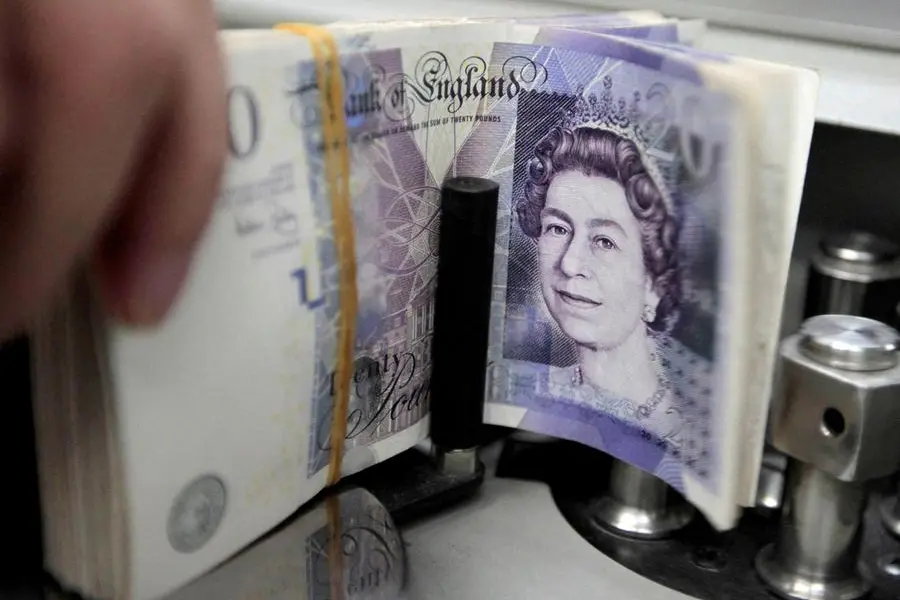PHOTO
LONDON - The pound rose on Friday against both the dollar and euro after data showed U.S. inflation cooled in December and the British economy beat expectations in November.
Sterling was 0.17% higher against the dollar at $1.223, and was heading for a weekly gain of more than 1%.
The euro was down 0.19% against pound at 88.66 pence, despite having earlier hit its highest level since the end of September at 88.97 pence. The euro remained on track for a weekly increase against the pound.
Data released on Thursday showed that the U.S. annual consumer price index (CPI) inflation rate fell for the sixth month running in December, spurring hopes that the Federal Reserve will be less aggressive in hiking interest rates.
Separate data on Friday showed Britain's gross domestic product rose 0.1% in November, below October's 0.5% increase but above expectations of a 0.2% fall.
"We... have a broader dollar weaker trend ongoing, and this is coming after yesterday's U.S. CPI print where we did see a moderation in price pressures and wage pressures," said Parisha Saimbi, FX strategist at French bank BNP Paribas.
"We had a better than expected (British) GDP print for November, which could also be helping the move."
The pound tumbled 10.6% in 2022 as the dollar surged on the back of aggressive interest rate hikes from the Fed, which rocked global markets and lured investors back towards U.S. assets.
However, the pound has risen sharply against the dollar since hitting a record low of $1.0327 in September. It was on track for its fourth consecutive monthly increase on Friday.
The dollar index, which tracks the currency against major peers, was roughly flat at 102.2 on Friday. It had fallen around 1.3% so far this year.
Yet the pound seems less strong when looked at against the euro. It had fallen around 0.2% in January as of Friday, after a drop of 2.5% in December.
Analysts have said this weakness reflects the bleak outlook for the UK economy.
"We still think a recession is on its way," said Ruth Gregory, senior UK economist at consultancy Capital Economics.
"It is too soon to conclude the economy will be able to get through this period of high interest rates and high inflation largely unscathed."
(Reporting by Harry Robertson, Editing by William Maclean)





















